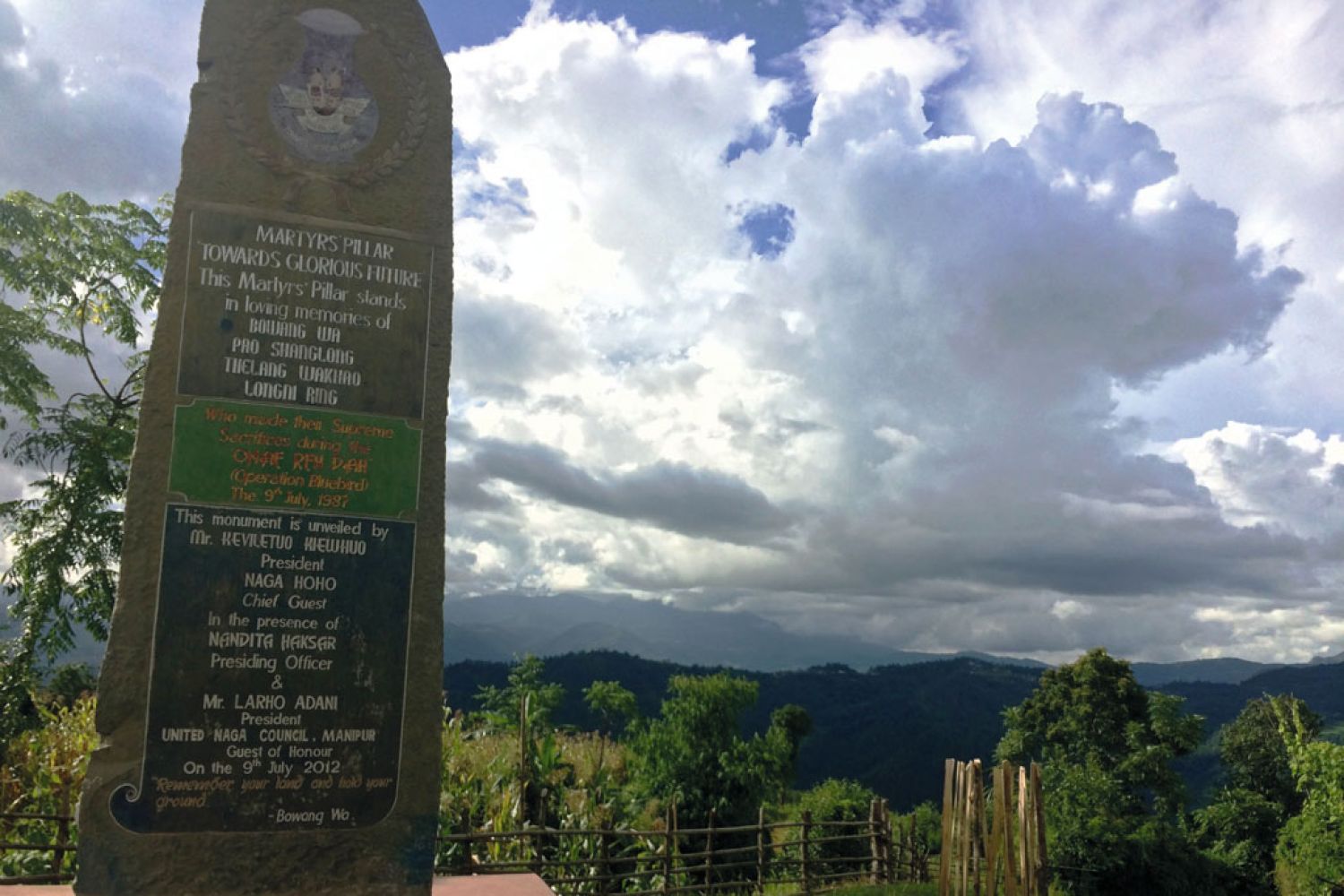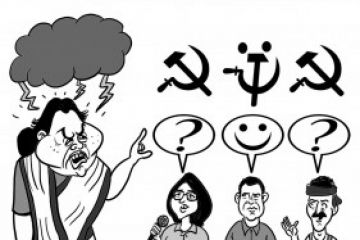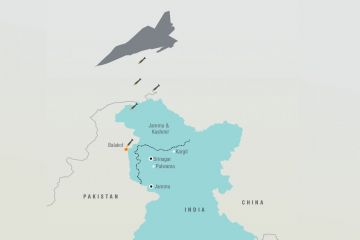
I remember the day I
was travelling to Oinam village in Manipur’s Senapati district. The beauty of
Manipuri landscapes made me wonder if I was journeying through a world of
paintings. As I shifted my attention from the far mountains, rivers and
grasslands to the road that connects to Oinam, I saw armed men in uniform
walking on either side of the road, mostly from army camps en route to nearby
villages.
As “Vidai kodu
engal nade” (grant me farewell, my land!) was playing on m





